Coaching and mentoring are more similar than they are different.
They are both developmental dialogues and use the same skills of listening, questioning, giving feedback etc., therefore they are often used interchangeably. Coaching is normally an assignment focused on behaviour and performance in a current role, with a shorter-term focus. The coach, mostly an external professional, helps the coachee achieve their goals and realize their potential, mostly in a period of change. Mentoring is a relationship with a focus on career self-management and longer-term development (6 to 12 months). Mentors are mostly internal experts.
- A coach is a qualified professional who helps a coachee find her/his own solutions.
- A mentor is an expert in a certain field who shares his/her know-how with a mentee in a supportive and non-hierarchical manner.
- Both are good listeners and primarily ask questions, in a trustful, 1-to-1 setting. While the coach does not need to understand the content of the coachee’s work, the mentor does.
- Coaching and mentoring are more similar than they are different. They are both developmental dialogues and use the same skills of listening, questioning, giving feedback etc., therefore they are often used interchangeably. Differences between the two forms of learning intervention tend to be defined by relationship and organization.
Main Differences
- Coaching is typically an assignment focused on behavior and performance in a current role, with a shorter-term focus. The coach helps the coachee achieve his/her goals and realize his/her potential, mostly in a period of change (eg. a new project or change of position).
- Mentoring is a relationship with a greater focus on longer-term development and career self-management that lasts normally between 6 to 12 months. The mentor intervenes primary on a skill development level, frequently in a post-graduate situation of the mentee to support her or him to bring the learnings into practice.
- While for mentoring we start with internal mentors and then explore external mentoring opportunities (for example working with like-minded NGOs with similar programs), for coaching it is the other way around: Most NROs are working in some capacity with external coaches, and we are exploring the possibilities of internal coaching.
- The other differences between coaching and mentoring are:
- Mentors more likely to make introductions, help develop networks, i.e. act as sponsors
- Mentors more likely to help explain politics of a particular organization or profession
- Coaches more likely to give feedback on behavior
Overlaps and Similarities
Because skills and personality development are not fully separated, there is sometimes an overlap (see graph below), i.e. there are coaches, e.g. in football or leadership, who have an expert knowledge as well, and there are mentors who may partially shift into a coaching role. Furthermore while both methods are 1:1 talks, coaching is quite strictly 1:1 mentoring is more open to other formats, e.g. settings with one mentor and two or more mentees, or tandem mentoring etc.
The main similarities between coaching and mentoring are:
- Focus on the quality of the learner’s thinking.
- Coach/mentor uses their experience to craft powerful questions.
- Advice giving is permissible, but not as a first resort and only in specific circumstances. (A common complaint about ineffective coaches is their over-rigid adherence to never giving advice.
- Much of the learning occurs in the reflections of the coachee/mentee between sessions (i.e. reflection on the reflection: A lot of learning can occur outside of the meetings).
- Coach and mentor both have a duty of care towards the coachee/ mentee.
Further, the International Coaching Federation (ICF), the world’s largest organization of coaches, states in terms of differences between mentoring and coaching (excerpts):
- “Coaching is defined as partnering with clients in a thought-provoking and creative process that inspires them to maximize their personal and professional potential”.
- “Professional coaching focuses on setting goals, creating outcomes and managing personal change.”
- “Mentoring: A mentor is an expert who provides wisdom and guidance based on his or her own experience. Mentoring may include advising, counselling and coaching. The coaching process does not include advising or counselling, and focuses instead on individuals or groups setting and reaching their own objectives.”
